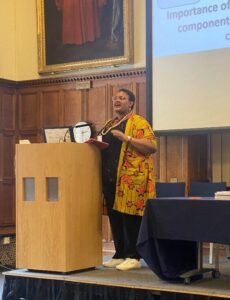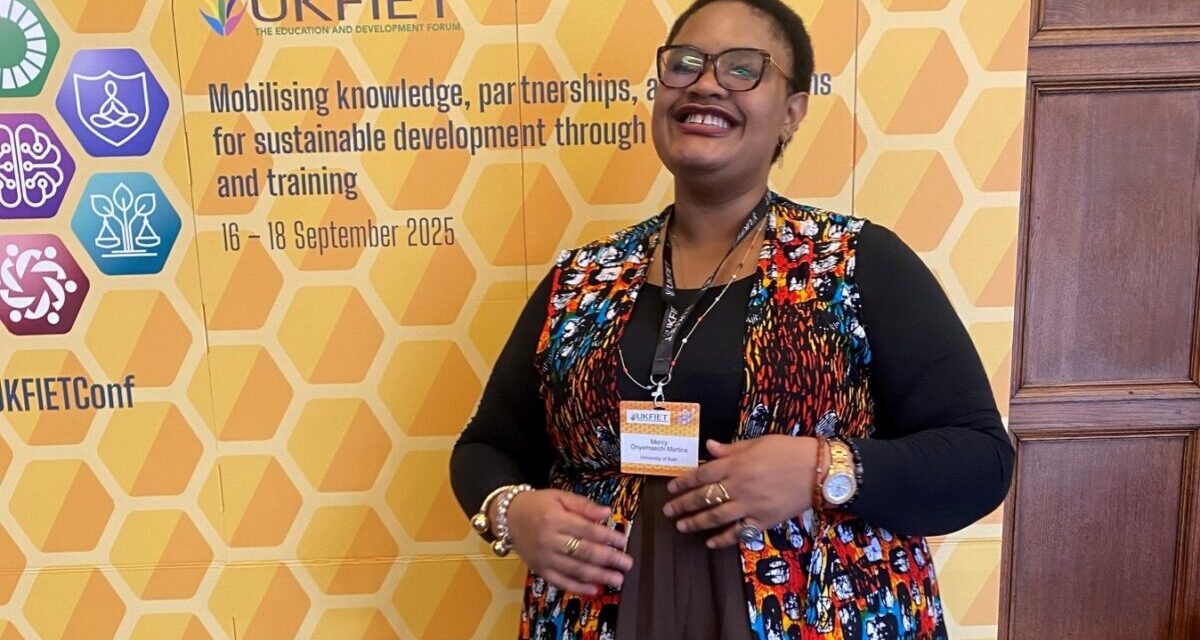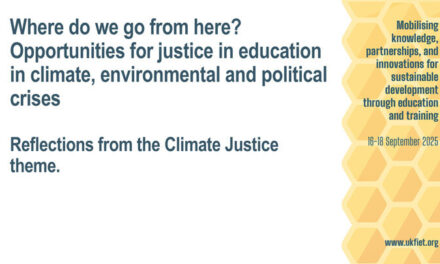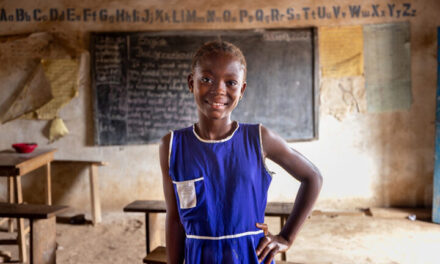This blog was written by Mercy Martins, University of Bath. For the 2025 UKFIET conference, a record 37 individuals from 15 countries, including Mercy, were provided with bursaries to assist them to participate and present at the conference. The researchers were asked to write a short piece about their research or experience of attending the conference
The 2025 UKFIET three-day conference was unlike any I had attended in my three years of doctoral research. Looking back, it was not merely because the day before, BAICE held an ECR conference in honour of Dr Arif Naveed, which allowed me to present my work and reflect on the messiness of qualitative research, or because a close friend and colleague accompanied me throughout the conference. While all of these factors mattered, what truly made the experience stand out for me were three notes of action: Hierarchy, Hard Questions, and Praxis.
From the first day, as I entered the beautiful and enchanting city of Oxford, the warmth of the conference was immediately evident. The event blurred the divide between research and praxis: every hallway, every room, and every conversation included both researchers and policymakers, discussing what research says and what is happening in practice. Participants from diverse backgrounds shared their work in spaces that felt like community—places where questions were asked from theoretical knowledge, practical knowledge, or both.
 Day by day, it became clear that this conference was unlike other international conferences I had attended. From shared meals before sessions, to walking meetings and even disco nights, it was evident that hierarchy was not rigidly defined; rather, it was intentionally minimised to allow early-career researchers (ECRs) to learn from those with wealth of experience. The ECR event further showcased the conference’s ethos. I found myself at tables sharing breakfast and dinner with the new chair of UKFIET, leading professors in my field, and senior programme officers in areas of my interest. These moments were like toast buttered with life experience, rich with knowledge and mentorship. From these informal encounters, I met individuals who later attended my sessions, offering encouragement and invaluable feedback. Without these multiple forms of networking, both formal and informal, this would not have been possible.
Day by day, it became clear that this conference was unlike other international conferences I had attended. From shared meals before sessions, to walking meetings and even disco nights, it was evident that hierarchy was not rigidly defined; rather, it was intentionally minimised to allow early-career researchers (ECRs) to learn from those with wealth of experience. The ECR event further showcased the conference’s ethos. I found myself at tables sharing breakfast and dinner with the new chair of UKFIET, leading professors in my field, and senior programme officers in areas of my interest. These moments were like toast buttered with life experience, rich with knowledge and mentorship. From these informal encounters, I met individuals who later attended my sessions, offering encouragement and invaluable feedback. Without these multiple forms of networking, both formal and informal, this would not have been possible.
At the heart of the conference was the BAICE presidential speech, which challenged us to ask hard questions. The President’s keynote spoke extensively about reparations and creating a just future, prompting deep introspection about our own roles in ongoing injustices. I was particularly struck by the silence in the room when issues related to Palestine were raised. This silence opened honest and difficult conversations about how we, collectively and individually, either silence or enable injustices. I was compelled to ask myself: What role do I play? How can I continue to ask these hard questions in my work? How can I reflect on my conscious and subconscious actions and consider how they affect who I am, my research, and the world I want to live in?
What I realised was simple: UKFIET is not just a conference; it is a space for praxis. It is a meeting point between policy and practice. It is a place for nurturing, a place to blossom, a place to belong, and a place to find someone who understands your research. It is a place that inspires more questions than answers. I was struck by the availability of everyone and the kindness of strangers. Over a month has passed since the UKFIET conference, yet I often find myself enchanted by memories captured in photographs. I look forward to the next UKFIET conference in 2027, as it challenges my thinking and pushes me to become a better researcher. The UKFIET community reminds me of the transformative potential that exists within both groups and individuals. It is a space that not only encourages us to ask difficult questions but also holds room for those questions with honesty and care.
I also recognise that my experience was shaped by privilege, having received the UKFIET bursary that covered the conference, accommodation and transportation. This support made my participation more accessible and allowed me to be fully present: staying close to the venue and engaging deeply without the burden of financial constraints. I remain deeply grateful to UKFIET for their generosity, support, and investment in my growth and career development.



